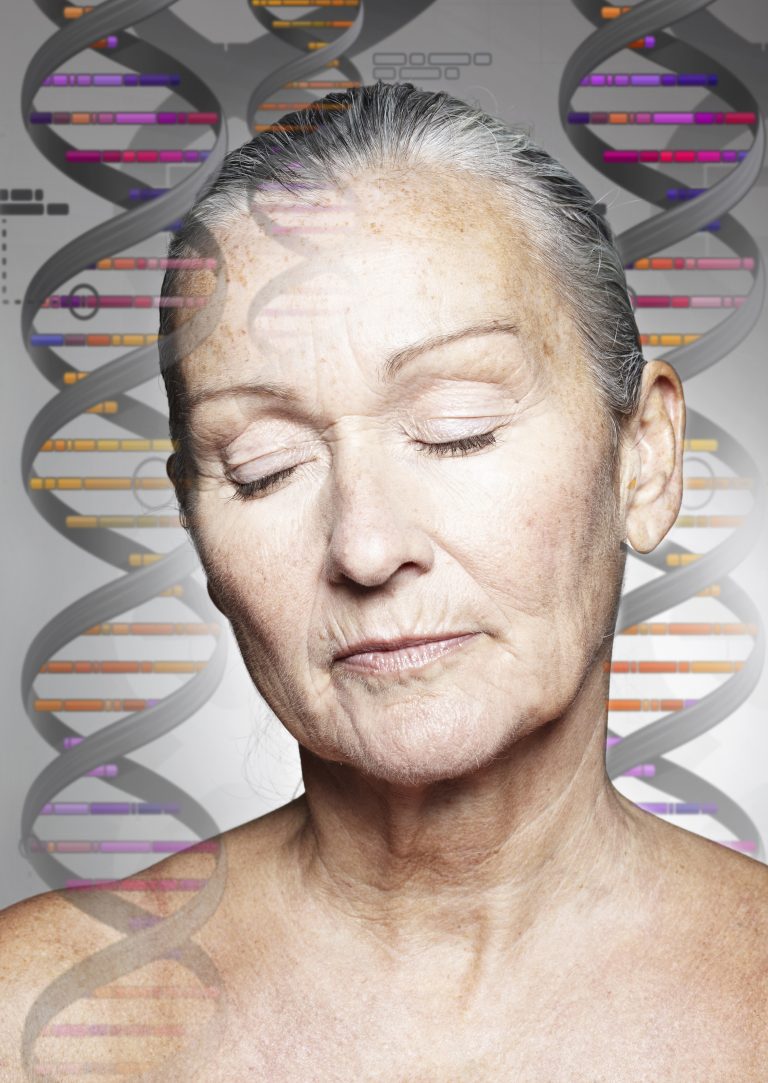
A large international study has revealed almost 300 genetic variants associated with early or late menopause, mostly linked to DNA damage response.
In an experimental study in mice, the researchers also found that they were able to extend reproductive span in the animals by manipulating the DNA damage response pathway, suggesting that a similar process could be possible in humans.
Most women undergo the menopause between the age of 47 and 52, but there are a significant minority of women that have abnormally early menopause before the age of 45 years or sometimes even at the age of 40 if they have a condition called primary ovarian insufficiency. Conversely, a small number of women undergo menopause several years later than average.
As reported in the journal Nature, the research team carried out a genome-wide association study (GWAS) on approximately 200,000 women of European ancestry and discovered a significant number of new variants linked to ovarian aging increasing the number of known variants from 56 to 290. The effect of each variant changed age at menopause between 3.5 weeks to around 74 weeks. Many of the highlighted genes are involved in DNA damage repair.
Some key examples of genes highlighted in the study include BRCA2 and CHEK2. Women with loss of function mutations in the former had an average age at menopause that was 1.54 years earlier than women without these mutations. In contrast, women with a dysfunctional CHEK2 gene had an age at menopause around 3.49 years later than other women.
The study was mostly carried out in women of European ancestry, although the results were largely replicated in just under 80,000 women of East Asian ancestry. Some effect sizes were different in this group however, for example, in the ENTPD1 gene one variant had a threefold greater effect in East Asians than in Europeans.
In addition to the GWAS study, the researchers also assessed if manipulating the genes CHEK1 and CHEK2 in mice could improve fertility and extend reproductive life. They found that extra copies of CHEK1 and inactive CHEK2 could improve reproductive life in the mouse model.
“We saw that two of the genes which produce proteins involved in repairing damaged DNA work in opposite ways with respect to reproduction in mice. Female mice with more of the CHEK1 protein are born with more eggs and they take longer to deplete naturally, so reproductive lifespan is extended,” explained co-author Ignasi Roig a researcher from the Universitat Autònoma de Barcelona.
“However, while the second gene, CHEK2, has a similar effect, allowing eggs to survive longer, in this case the gene has been knocked out so that no protein is produced suggesting that CHEK2 activation may cause egg death in adult mice.”
While this work is promising and may help women to prolong their reproductive life in the future, it is still at an early stage.
“Any treatments that reduce CHEK2 expression might have adverse effects… because CHEK2 is a tumor-suppressor gene, and certain CHEK2 mutations increase the risk of various cancers,” caution the authors of an accompanying news and views article also published in Nature.
“CHEK2 inhibitors are under development for treating cancer, but are unlikely to be suitable for non-cancer-related disorders.”













